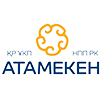Kazakhstan officially joined the World Trade Organization (hereinafter referred to as the WTO) on July 27, 2015. The transition period will be completed on January 1, 2021 and Kazakhstan’s business will become the part of a highly competitive environment with the rivals from around the world. Within this, today there are more than 100 measures to support domestic producers and local content stipulated in a number of regulatory documents of Kazakhstan, which partially contradicts the WTO rules and regulations.
The Oil and Gas Sector Strategic Partnership Development Council with participation of KAZENERGY Association and Atameken NCE organized the Forum “Oil and gas sector of Kazakhstan in the context of the WTO” on February 22, 2019 in order to provide more detailed explanation of the mechanisms of work under the WTO. Such issues as the Pros and cons of the WTO for oil and gas industry; how the Central Asian oil and gas market will change; the future of Free Economic Zones; legal aspects of the WTO and local content in the oil and gas sector; human capital development in the context of the WTO were discussed at the Forum.
The Forum was attended by about 250 oil and gas professionals from Atyrau, Uralsk, Astana, Almaty, Aktobe, and Aktau including the representatives of the Ministry of Energy of the Republic of Kazakhstan, KAZENERGY Association, Atameken NCE of the Republic of Kazakhstan, NADLoC JSC, NIPT SEZ, PSA and major oilfield service companies operating in West Kazakhstan.
Mira Dossova, the Partner of Dasco Consulting Group, offered to pay attention to the fact that the WTO regulations do not contain direct provisions that prohibit the local content requirements. “However, their legitimacy shall be defined in terms of the presence/absence of inconsistencies with the WTO rules, and, in particular, the provisions of:
· General Agreement on Tariffs and Trade (GATT);
· General Agreement on Trade in Services (GATS);
· Agreement on Trade-Related Investment Measures (TRIMs):
· Agreement on Subsidies and Countervailing Measures (SCM Agreement);
· Agreement on Government Procurement (GPA).
Article III of the GATT (trade in goods) contains the key GATT principle – the national treatment principle – under which the imported products should not be disadvantaged vis-à-vis domestic like products. The WTO member countries should establish equal conditions for the competition of imported and domestic goods. This means that they are required to treat foreign goods in accordance with exactly the same procedure as their national goods in terms of domestic taxes and fees, as well as the national laws, regulations and rules governing domestic trade”, – Mira Dossova noted.
Local content measures are not something new in the world practice. According to experts, such measures are mostly applied during crisis. For instance, Australia, USA, Argentina, Brazil, China, India, Indonesia and Kazakhstan, among others, accepted more than 100 new local content requirements during the crisis in 2008/2009.
In addition, many WTO member countries often included and continue including different local content requirements when awarding licenses (for example, for broadcasting) or subsoil use contracts, and more recently in the provision of feed-in tariffs for renewable energy (RES) projects.
Assylbek Dzhakiyev, the official representative of Atameken NCE of the Republic of Kazakhstan responsible for the interaction with oil and gas operators, stated: “The correct strategy of the local content development based on interaction and equal value of business and society has proved its effectiveness in many countries. This strategy will not only improve the project competitiveness, but also provide stable economic development of the host country. At the same time, the work in the context of the WTO will have a positive effect on sustainable economic development: it will provide anti-dumping, countervailing and special protective measures in accordance with agreements approved by the WTO, ensure the transparency of trade and privatization processes, and also remove technical barriers to trade”.
After the Forum, all guests and speakers had the opportunity to negotiate in the framework of B2B meetings organized on a single platform. Also, the Forum included the presentation of the International Women’s Club established under the Oil and Gas Sector Strategic Partnership Development Council to consolidate top-level women leaders to solve the vital problems and develop solidarity in improving the status of women in the context of globalization. Dameli Bakiyeva, Head of the Chairman Protocol responsible for interaction with the Members and partners of KAZENERGY Association, will be the Head of the IWC.
For reference
The Oil and Gas Sector Strategic Partnership Development Council is a consultative and advisory association of legal entities established under the auspices of Atameken NCE of the Republic of Kazakhstan and KAZENERGY Association, which coordinates the activities of all unions, councils and other alliances acting with the participation of Atameken NCE, KAZENERGY, the Ministry of Energy, the Ministry of Investment and Development, PSA and other interested structures. The Council aims to improve the efficiency of consolidated work and eliminate duplicate actions. In addition, the association represents and promotes the interests of oilfield service companies and oil and gas market operators to ensure fair and efficient oil and gas market development.
+7 707 250 7568 PR Manager Raushan Naizabayeva, raushan@petrocouncil.kz

